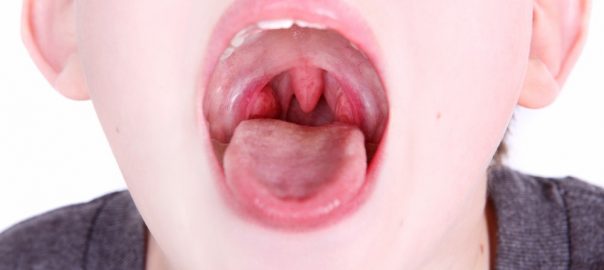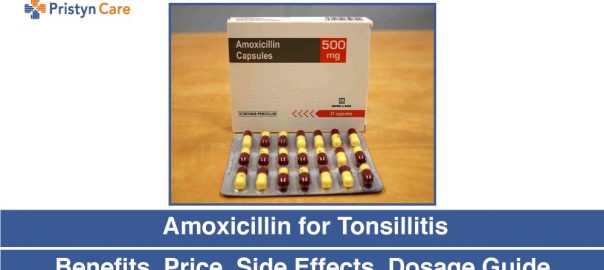![]() Views: 5,150
Views: 5,150
What is Postnasal Drip?
The excess mucus usually comes out through the nose - called runny nose - and drains down the throat as a postnasal drip.
Dedicated Support at Every Step!
Our Doctors are available 24 hours a day, 7 days a week to help you!
Table of Contents
What leads to a postnasal drip?
Mucus helps moisten the body cavities. It also helps trap and destroy foreign substances like bacteria and viruses before they cause infection. However, excess mucus production can be harmful. It is usually triggered by:
- Flu and colds
- Allergies
- Bad breath
- Sinus infections
- Insertion of foreign objects into the nose
- Hormonal changes during the pregnancy
- Adverse reaction to some medications like birth control pills, blood pressure medication, etc.
- Poor nasal drainage due to a deviated nasal septum
- Frequently changing weather or cold/dry weather
- Spicy foods
- Nasal irritants like fumes from chemicals, perfumes, cleaning products, smoke, etc.
Postnasal drip can also be caused if the mucus is not being cleared away properly. This usually happens due to swallowing problems, blockage in the esophagus, GERD (gastroesophageal reflux disease), etc.
While postnasal drip itself isn’t contagious, if it is caused due to an infection, it can spread from one person to another through infectious organisms in the mucus.
No Cost EMI, Hassle-free Insurance Approval
What are the signs of postnasal drip?
With a significant postnasal drip, you will experience the following symptoms:
- Constant feeling of wanting to clear the throat
- Cough, which gets worse at night
- Hoarse and scratchy voice
- Sore throat
- Ear infections
- Sinus infections
Other symptoms of a postnasal drip are frequent urge to swallow, nausea and vomiting due to excessive mucus drainage into the stomach.
How is postnasal drip managed?
The treatment for postnasal drip depends on its cause. Some common management techniques for postnasal drip include drying out the mucus, thinning its consistency, and nasal sprays.
-
Drying the mucus
- If you have a green or yellow postnasal drip, then it is possible you might have an infection. Antibiotics help clear bacterial infections, while viral infections can be managed using antihistamines and decongestants.
- Other medications that can help viral infections and associated ear and sinus infections are steroid nasal sprays, oral corticosteroids, etc.
While these medicines are over-the-counter, the patient should consult a doctor before taking them, as even among these medicines, some may be helpful, while others may be harmful depending on the patient’s infection causes and symptoms.
For example, diphenhydramine (present in Benadryl) and chlorpheniramine (present in Chlor-Trimeton) can dry out and thicken the mucus, leading to dryness in the nasal and oral passages. On the other hand, antihistamines like loratadine, fexofenadine, cetirizine, levocetirizine, desloratadine, etc., are generally considered better for postnasal drip without closing drowsiness or dry mouth.
-
Thinning mucus consistency
Other medicines like guaifenesin help thin the mucus to make its flow easier and prevent blockages in the ear and sinuses. Additionally, some home remedies like hot baths, drinking hot liquids, etc., described below, can also help thin the mucus consistency. Humidifiers and vaporizers help increase moisture in the air, which helps thin the mucus and makes drainage easier.
-
Nasal sprays and rinses
Saline nasal sprays and irrigation using a neti pot, nasal rinse systems, etc., help maintain hygiene and make mucus drainage easier. They clear blocked airways and reduce the overall mucus content to help patients breathe better.
Some medicinal nasal sprays that patients can try are:
- Flonase (Fluticasone propionate) for allergic rhinitis
- Ipratropium bromide for relieving stuffy or runny nose due to colds or seasonal allergies
- Azelastine for treating runny nose, sneezing, and seasonal allergies.
-
Surgery
In severe cases, if none of the medicines work and the patient develops a serious ear infection or sinus infection, they may need surgery to help them recover. The best option for sinus surgery is FESS (functional endoscopic sinus surgery) and balloon sinuplasty. Surgery for ear infections is called myringotomy (with or without ear tube insertion).
Home remedies for postnasal drip
Postnasal drip is such a common issue that, over time, people have recognized various home remedies that can help their recovery without any medications. Some common home remedies for postnasal drip recovery are:
- Hot liquids like soup, water, tea, etc. open up stuffy nose and throat, thin out the mucus, and prevent dehydration, all of which aid elimination of postnasal drip.
- Hot, steamy showers and baths also help open up clogged nasal and paranasal cavities and help the patient breathe better.
- Some patients also prefer sleeping in a propped-up position at night so that the mucus doesn’t collect at the back of the throat.
- Patients with rhinitic allergies should avoid nasal irritants and allergens to prevent worsening of the symptoms.
- Change the filters on your heating, ventilation, and air conditioning systems regularly.
- Avoid caffeine and diuretics as much as possible as they can lead to dehydration and thickening of the mucus.
However, if you have a fever or significant trouble breathing, or your symptoms last for more than 10 days without any improvement, then you should immediately consult an ENT doctor for further treatment and recovery.










